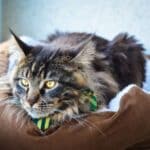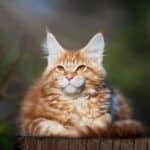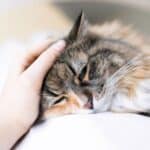If you’re a lucky owner of a member of the largest cat breed in the world, chances are you understand the challenges of keeping your Main Coon happy and healthy.
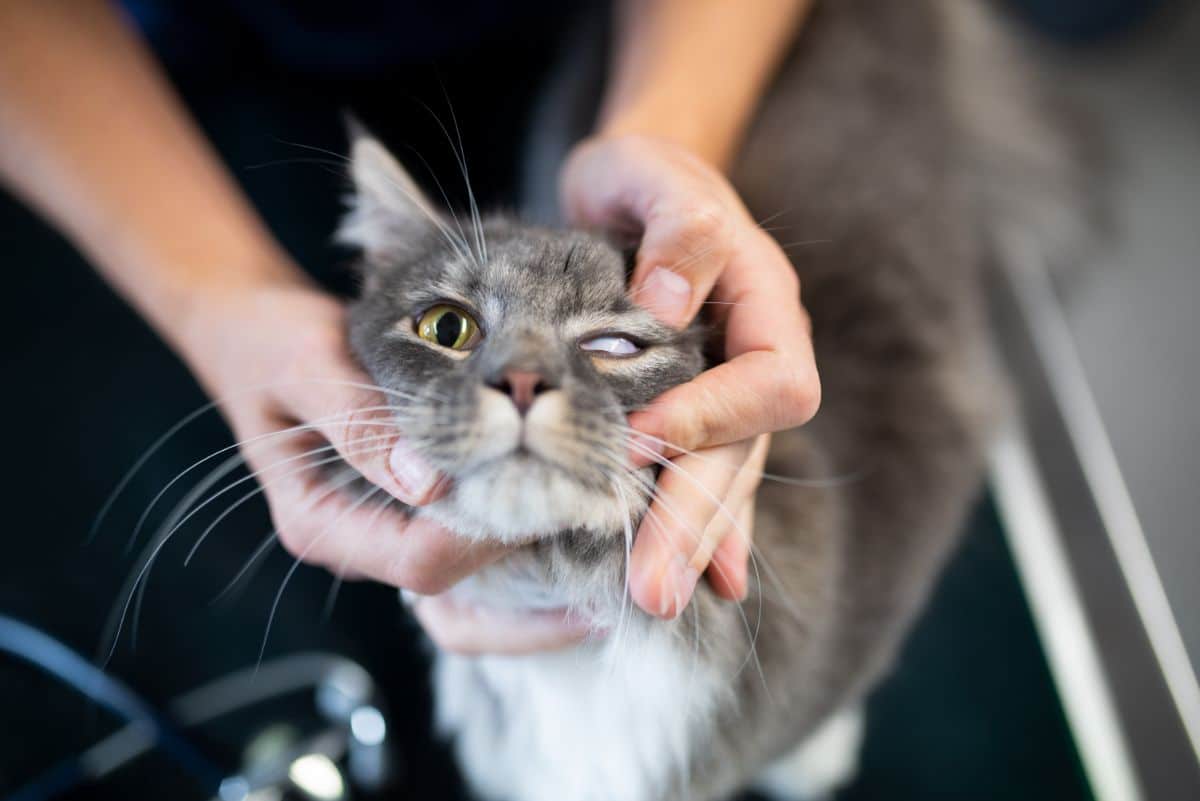
You’ve worked hard to create a balanced diet, incorporate plenty of exercise and affection into your cat’s life, and have welcomed your Main Coon into your family, fully understanding the responsibility required to care for the breed.
You can do everything right, and your cat may sometimes fall ill. In this article, we’ll discuss Maine Coon eye problems that your furry friend may face in their life. We’ll review different eye diseases they can be susceptible to and how to treat them.
Here are the eye conditions we’ll cover in this article.
- Conjunctivitis
- Eye inflammation due to allergies
- Cataracts
- Corneal disorders
- Dry eye
Jump to:
Conjunctivitis and Your Main Coon
Commonly referred to as “pink eye” in humans, cats are susceptible to this condition, too! Conjunctivitis occurs when the thin mucus membrane of the eye becomes inflamed.
Conjunctivitis is the most common eye issue that veterinarians see in cats, and it will likely affect your cat at least once in its life.
What Causes Conjunctivitis in Cats?
Unfortunately, it can be hard to pinpoint exactly what triggered conjunctivitis in your cat. There are a variety of triggers that can cause the condition. Sometimes it can be an environmental issue, such as pollen, dust, or other plant particles.
A virus can also cause it. There are two viruses known to cause conjunctivitis in cats. These viruses are the herpesvirus and the calicivirus.
Conjunctivitis can also be caused by at least two different types of bacteria that infect your cat’s eye. The bacteria types are chlamydophila or mycoplasma.
How Do I Know if My Cat Has Conjunctivitis?
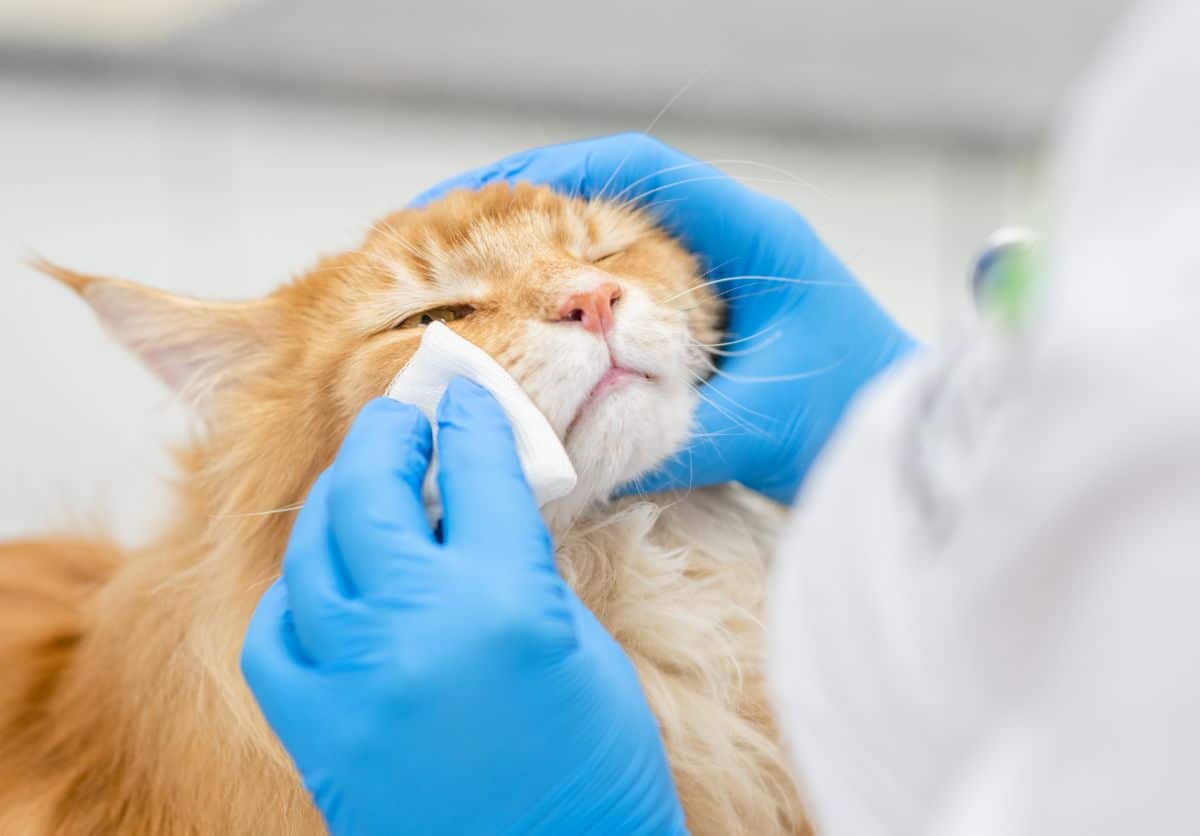
You will probably notice irritation surrounding the infected eye. There may be discharge, frequent blinking, squinting, and even some swelling and redness. Discharge may be clear and tear-like, or it may be thick and yellow or green.
How Do I Treat Conjunctivitis in My Maine Coon?
Thankfully, most cases of conjunctivitis resolve themselves. However, you should take your cat to the veterinary office to rule out any other serious issues. Typically, conjunctivitis is treated with an antibiotic that may come in the form of eye drops or an ointment.
Be sure to follow the instructions given by your vet and continue treatment for as long as prescribed. Thankfully, Maine Coon cats are not known to be especially susceptible to conjunctivitis, and most healthy cats develop immunity after the first case.
Eye Inflammation and Your Maine Coon
If you notice that your cat’s eye appears inflamed, several culprits could be to blame. Issues range from easy to fix to very serious, so it’s always a good idea to discuss any concerns with your vet.
Eye Inflammation Due to Allergies
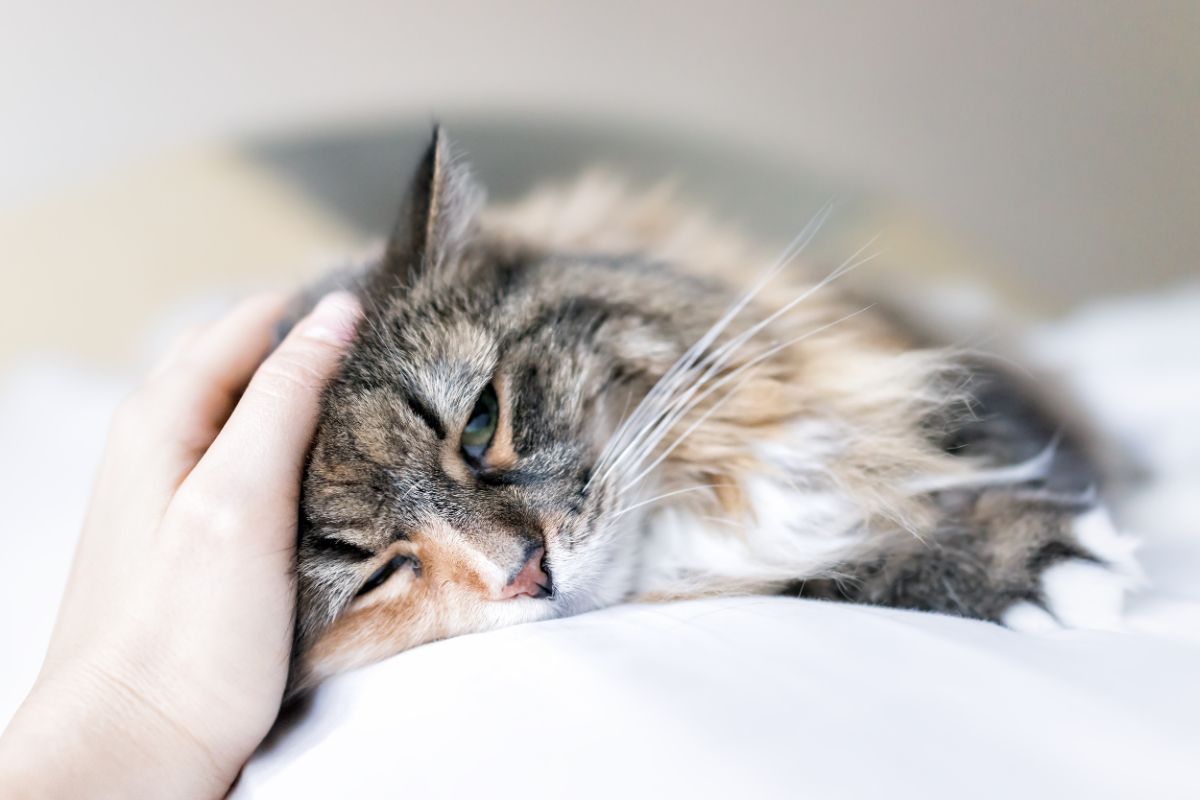
Like humans, your Maine Coon can suffer from allergies that cause eye inflammation. Allergies from dust and pollen may cause itchy, watery, and red eyes.
Keep your pet inside for a few days if you notice your cat rubbing their eye with their paw and suspect it may be allergies. A pollen or plant particle may be outside that is affecting their eyes.
There may be causes for your cat’s allergies indoors as well. Beyond mold and dust, certain cleaning chemicals and perfumes have been known to cause eye irritation in cats.
If you’re having trouble determining the cause of your cat’s allergies, book an appointment with your vet. They will assist you in determining what may be causing your cat’s discomfort and the best course of treatment.
Cataracts and Your Maine Coon
Cataracts don’t just affect humans; they can also appear in dogs and cats. Cataracts occur when the lens of the eye becomes cloudy or opaque. Cataracts range from very small and only affecting a small part of your cat’s vision to very large, causing blindness.
Thankfully, research has not shown that Maine Coons are especially susceptible to cataracts. However, it may be part of the natural aging process for some cats.
What Causes Cataracts in Maine Coons?
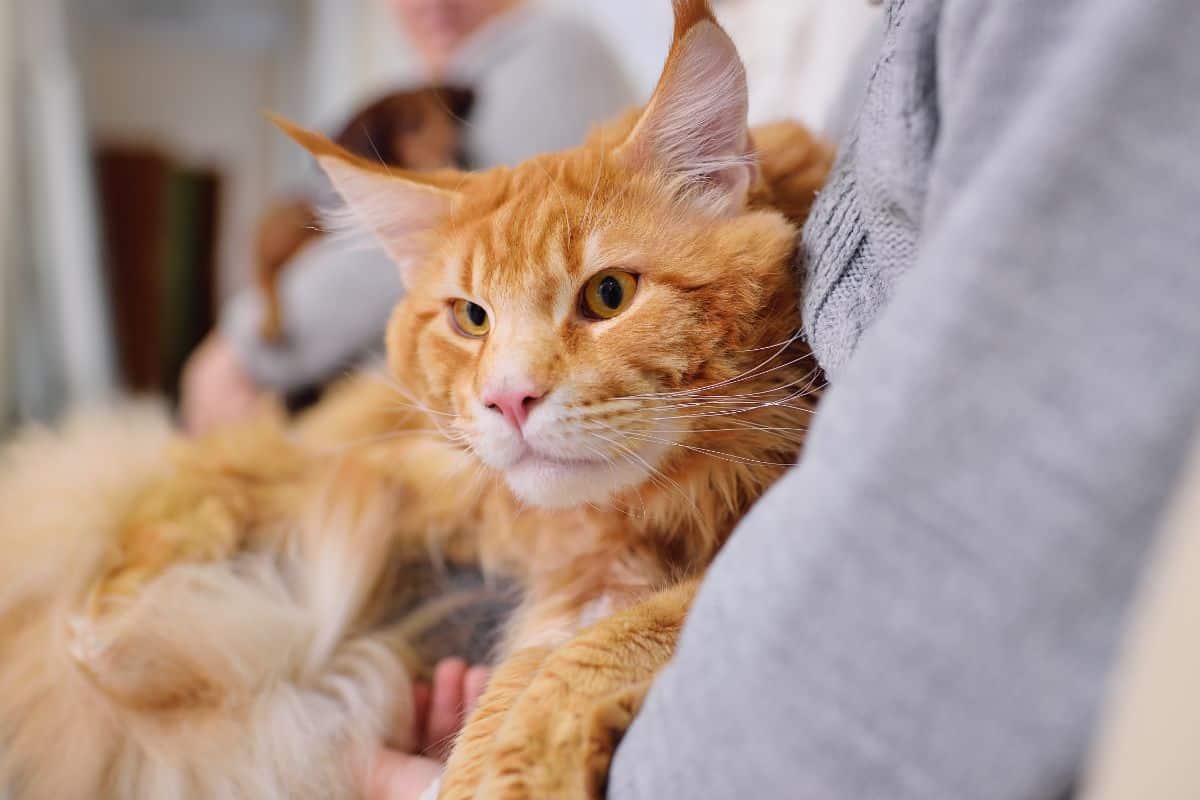
There are a variety of reasons cataracts can occur. Sometimes they happen due to your cat’s inability to process specific proteins, diabetes, hypertension, or the natural aging process. You can learn more about the causes of cataracts in cats here.
Are Cataracts Always Noticeable?
While an advanced cataract is easily discernible from a healthy cat eye, sometimes cataracts can go undiagnosed because they are so small.
Watch out for behavioral changes in your cat. Perhaps they are becoming more clumsy, bumping into objects, or less agile while playing.
Always ask for an eye exam when taking your cat to the vet. This is the only sure way to know if your cat has a cataract or not.
How Are Cataracts Treated?
This depends on the cause of cataracts. Your vet will be able to help you figure out why your cat is suffering from a cataract. If the reason is diabetes or hypertension, medications to control those issues will likely slow the growth of cataracts.
If the cataracts are large, surgery may be necessary to repair the eye and implant an artificial lens.
Corneal Disorders and Your Maine Coon
Just like us, your cat has a cornea. When there is a problem with the cornea in the eye, it's referred to as a corneal disorder. Corneal disorders in cats can cause cloudy vision, excessive blinking, and increased tear production.
What Causes Corneal Disorders in Cats?
Typically a corneal disorder arises when your cat sustains an injury to the cornea. The cornea is the dome-shaped area that covers the surface of the eyeball.
How To Treat Corneal Disorders in Cats
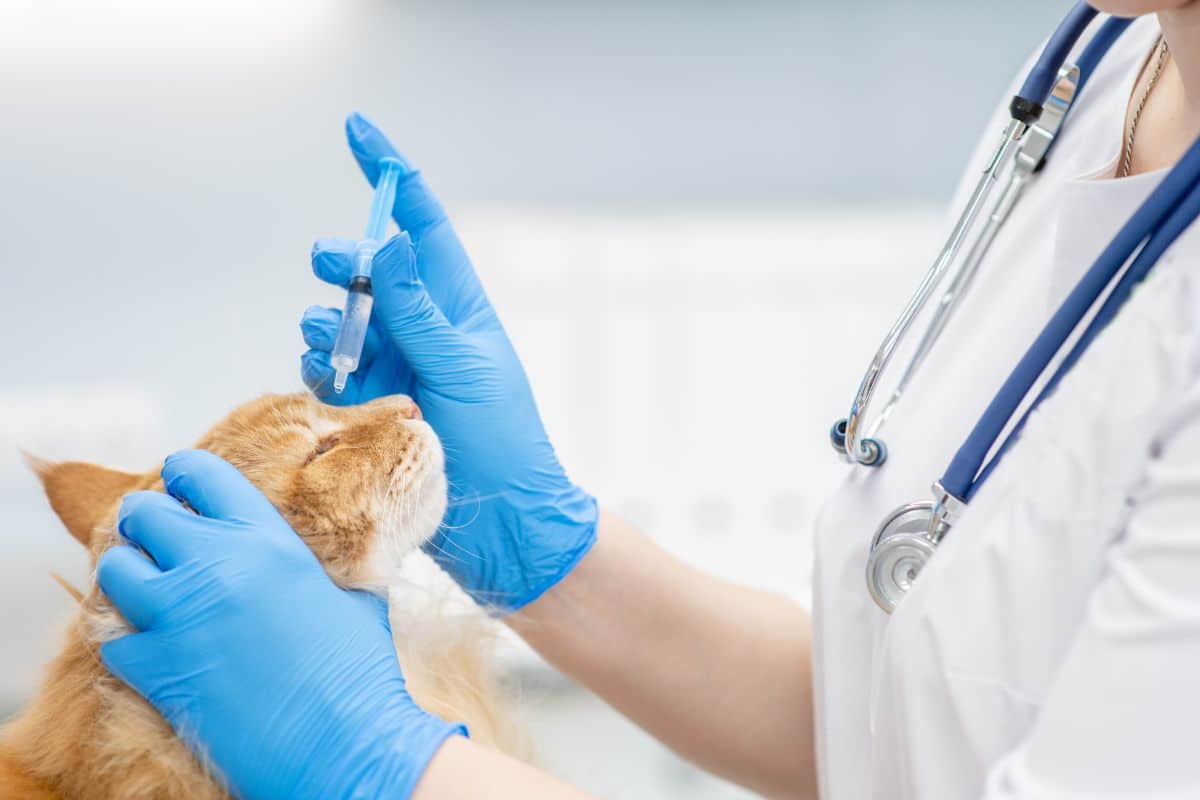
If you suspect your cat has sustained an injury to its eye, vet treatment is recommended as soon as possible. Your vet will most likely prescribe an antibiotic to keep the injury clean, and lubricating eye drops to keep the eye moist.
There is a hereditary component to some corneal disorders, such as corneal disease, that results in ulcers. Some cat breeds, such as domestic shorthairs and Manx, have been known to be genetic carriers of this disease. Thankfully, Maine Coon cats have not been identified as a common carrier of corneal diseases.
Dry Eye and Your Maine Coon
While the name is self-explanatory, the results of untreated Dry Eye can be serious. Dry Eye in cats is caused by a chronic underproduction of tears resulting in dry eyes.
What Are Symptoms of Dry Eye in Cats?
Dry Eye, or keratoconjunctivitis, can cause several unpleasant symptoms for your cat. The main symptoms are frequent blinking, squinting, yellow, green, or white discharge from the eyes, redness, and swelling.
How Is Dry Eye Treated?
Thankfully, there are several treatments your vet may suggest. There are different medications available on the market that simulate natural tears and lubrication to keep your cat’s eyes from drying out. To review the list of common medications prescribed for dry eye, check out the list here.
Once medication or therapy has begun, you will likely be asked to book follow-up appointments to ensure the treatment is working properly. Because vets believe this to be an immune system issue, treatment will be ongoing for the rest of the cat’s life.
Frequently Asked Questions
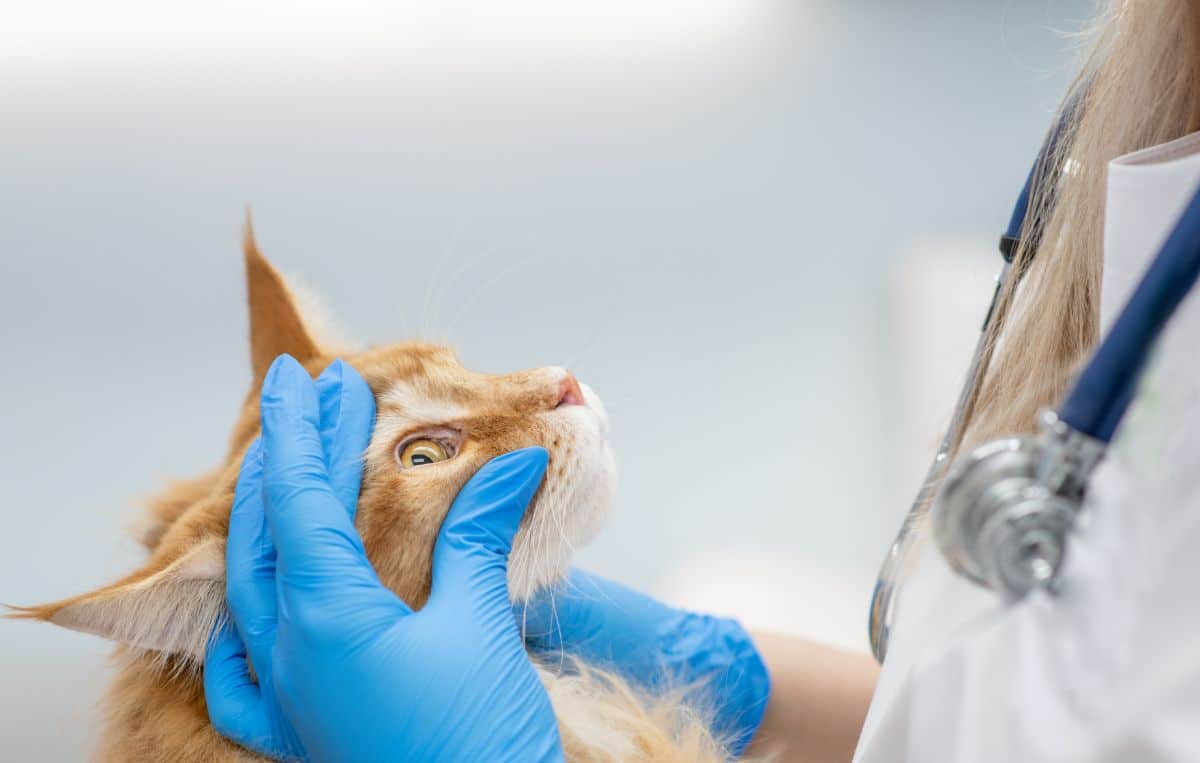
Do you still have some questions? Don’t worry; you’re not alone! Here are some of the most commonly asked questions about Maine Coons’ health.
The most likely cause is that your Main Coon may suffer from conjunctivitis or eye inflammation. It’s important to speak with your vet to determine the cause of any eye discharge you notice.
Take special note if the discharge is clear or thick and what color it is. Try to see if there have been any changes in your environment that may be causing inflammation.
Finally, follow all your vet's instructions and give the appropriate dosage for the specified time to ensure your cat’s eye gets back to normal.
While eye discharge is usually only a sign of inflammation or conjunctivitis, it’s always a good reason to book an appointment with your vet.
Take note of any other respiratory issues your cat may be suffering from. Symptoms like a cough or sneezing are relevant to bring up to your vet at the appointment.
Thankfully, eye discharge in cats is rarely serious and usually very treatable. However, visiting the vet is always a good idea to decrease your cat's suffering and rule out anything more serious. Medications can not only ease the pain and discomfort of the eye discharge but get to work on destroying any bacteria causing issues.
Maine Coons are more prone to certain conditions and diseases than other cat breeds. These include:
Hip dysplasia
Hypertrophic cardiomyopathy
Obesity
Spinal muscular atrophy
Stomatitis
Polycystic kidney disease
As with eye conditions, regular vet appointments will help with the early detection of any of these conditions and can even assist in preventing them.

